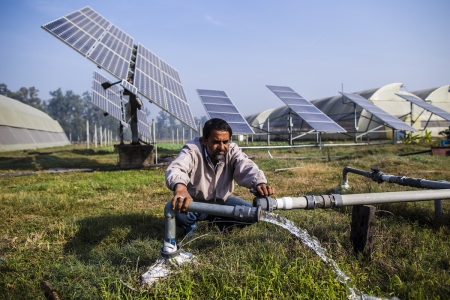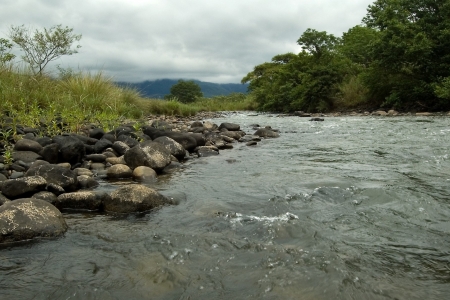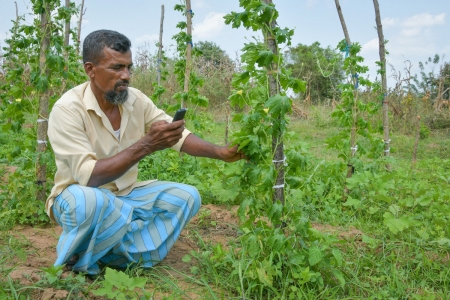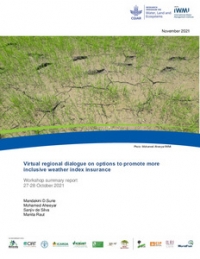Putting nature at the heart of decision-making is key to achieving transformative change when it comes to securing humanity's future. This is one of the key messages from a new synthesis report by the UN Environment Programme (UNEP) launched on February 18.
The report, for which WLE-supported IWMI researcher Sonali Senaratna Sellamuttu was a member of the Scientific Advisory Group, offers a comprehensive blueprint for addressing the triple emergency faced by the planet: climate change, biodiversity loss and pollution. It also highlights the opportunity that COVID-19 recovery plans present in terms of investing in nature and reaching zero net emissions by 2050.
"We are at a critical juncture, where the threats posed by climate change, the loss of biodiversity and ecosystem services and increasing pollution, further compounded by the COVID-19 pandemic, have had a profound impact on all of us and how we go about our daily lives, as we have experienced first-hand, over the last year," said Sonali Senaratna Sellamuttu.
Making Peace with Nature, lays out the gravity of these three environmental crises by drawing on global assessments, including those from the Intergovernmental Panel on Climate Change (IPCC) and the Intergovernmental Science-Policy Platform for Biodiversity and Ecosystem Services (IPBES), as well as UNEP'S Global Environment Outlook report, the UNEP International Resource Panel, and new findings on the emergence of zoonotic diseases such as COVID-19.
2021: A crucial year for the planet
Urgent action must be taken by governments, businesses, communities and individuals, according to the report, which flagged 2021 as a crucial year for the planet -- in the lead up to key climate and biodiversity convention meetings such as UNFCCC COP 26 and CBD COP 15.
The report says now is the time for governments to come up with synergistic and ambitious targets to safeguard the planet by halving greenhouse gas emissions in this decade, and by conserving and restoring biodiversity.
Advances in science and bold policymaking could open a pathway towards the achievement of the Sustainable Development Goals by 2030, while bending the curve on biodiversity loss and curbing pollution and waste, according to the report.
"To enable a transformative change to address these challenges that affect our food, nutrition and water security and ultimately our well-being, a multi-pronged approach is needed, involving a range of stakeholders. The scientific/research community have an important role to play here.
"The CGIAR through evidence-based research, can contribute to the development and implementation of innovative technologies and management practices within the interconnected agriculture-fisheries-forestry-water-energy systems that the new UNEP synthesis report refers to, to help enhance resilience and work towards more sustainable, nutritious food systems and healthier ecosystems," Sonali said.
Triple planetary threat
Economic growth has led to uneven gains in prosperity, leaving 1.3 billion people poor, while tripling the extraction of natural resources to damaging levels. Despite a temporary decline in emissions due to the pandemic, Earth is heading for at least 3°C of global warming this century. More than 1 million of the estimated 8 million plant and animal species are at increased risk of extinction. Diseases caused by pollution are killing around 9 million people prematurely every year.
The report shows how this trio of environmental emergencies interact and have common causes, and therefore can only be effectively addressed together. Subsidies on fossil fuels, for example, and prices that leave out environmental costs, are driving the wasteful production and consumption of energy and natural resources that are behind all three problems.
Investing in nature
Transformative change can create prosperity, employment and greater equality. This kind of change, according to the report, involves reshaping how we value and invest in nature, integrating that value into policies and decisions at all levels, overhauling subsidies and other elements of economic and financial systems, and fostering innovation in sustainable technologies and business models.
Some of the key actions identified by the report include:
-
Governments to put a price on carbon and shift trillions of dollars in subsidies from fossil fuels, as well as move away from non-sustainable agriculture and transportation towards low-carbon and nature-friendly solutions.
-
Financial organizations to stop lending for fossil fuels and develop innovative finance for biodiversity conservation and sustainable agriculture.
-
Scientific organizations to pioneer technologies and policies to reduce carbon emissions, increase resource efficiency and lift the resilience of cities, industries, communities and ecosystems.
-
Businesses to adopt the principles of the circular economy to minimize resource use and waste and commit to maintaining transparent and deforestation-free supply chains.
-
Individuals to reconsider their relationship with nature, learn about sustainability and change their habits to reduce their use of resources, cut waste of food, water and energy, and adopt healthier diets.

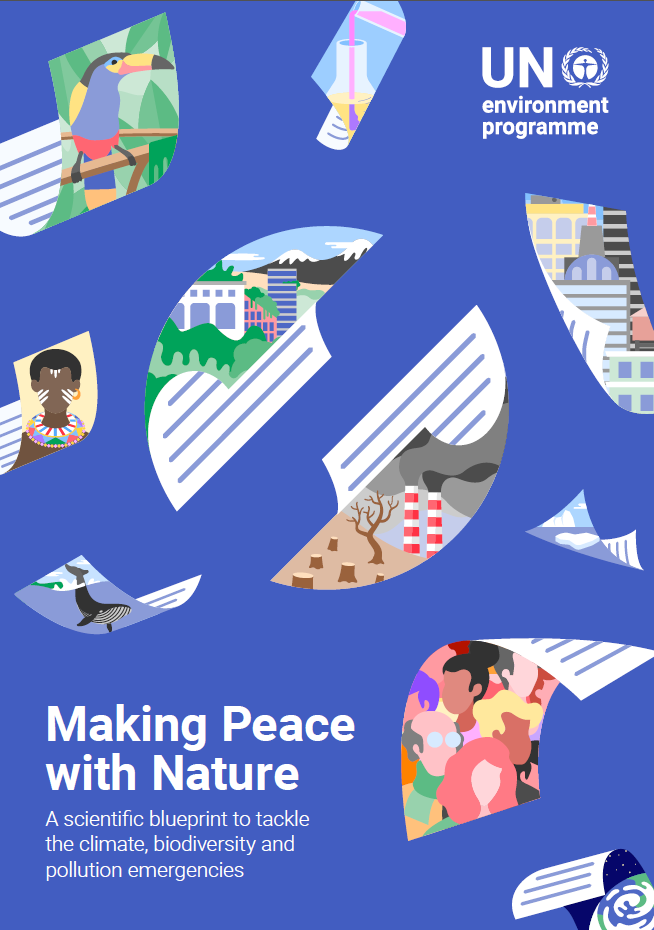



/index.jpg?itok=EzuBHOXY&c=feafd7f5ab7d60c363652d23929d0aee)


